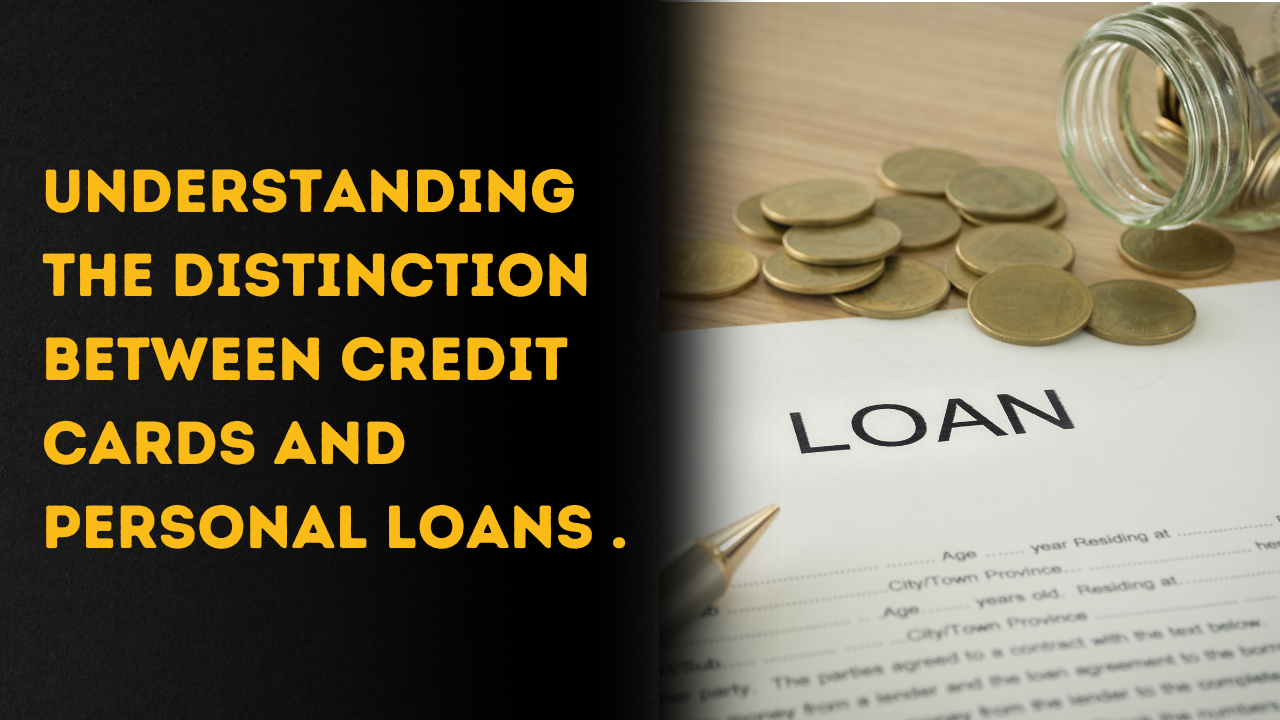Credit Cards vs. Personal Loans
26 Apr 2024 3 mins Personal Finance

The key to effective money management is understanding the differences between personal loans and credit cards. Although they are both essential tools for obtaining credit, their workings are very different. Let's examine their basic differences and the situations in which each is useful.
1.Credit Cards: Balance Transfer
Revolving credit, which gives you access to a set credit limit, is a feature of credit cards. If you make at least the minimum payment each month, you are allowed to borrow up to this amount numerous times. Usually, at the conclusion of your payment cycle, interest is added to any outstanding debt.
2.Credit for Individuals: Installment Loans
In contrast, personal loans offer an upfront lump sum that you return over the course of a defined loan period—typically one to seven years—through regular monthly installments. There is no such thing as a revolving debt because interest is charged on the full loan amount from the beginning.
3.When Is It Time to Take Out a Personal Loan?
Personal loans are the best option when dealing with unanticipated costs or large purchases. They offer up-front money for things like debt consolidation, house remodeling, and auto maintenance. Among the benefits of personal loans are:
1.Predictable Payments: Budgeting is made easier with fixed monthly installments.
2.Potentially Lower Interest Rates: This could result in long-term cost savings when compared to credit cards.
3.Credit Score Improvement: Regular payments will progressively raise your credit score.
4.However, it's essential to consider the downsides:
1.Not Suitable for Everyday Purchases: The application process and repayment structure are less ideal for daily expenses.
2.Potential Credit Score Impact: Applying for a loan may temporarily reduce your credit score.
5.When Is It Appropriate to Use a Credit Card?
When it comes to everyday spending like groceries or internet shopping, credit cards provide unparalleled convenience. It is essential to pay off your debt in full by the due date in order to prevent incurring interest. Among the advantages of credit cards are:
1.Rewards Programs: A lot of credit cards provide you points or cash back for your purchases.
2.Simple to Use: You don't have to apply for a new loan for every purchase.
6.But be aware of the dangers
1.Risk of Overspending: If credit cards are not used wisely, they can result in overspending.
2.High APR: Having a balance can lead to high interest rates, which could result in significant debt.
Bottom Line
Making wise financial decisions requires an understanding of these distinctions. Credit cards are great for small-time spending and credit building, but personal loans work better for larger-ticket items that need a fixed payback schedule and cheaper interest rates.